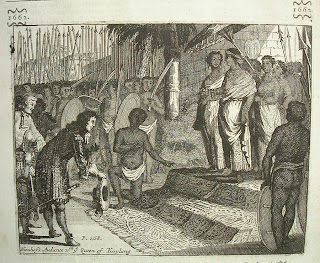Significance of Tulasi marriage or Tulasi Vivah


Significance of Tulasi marriage or Tulasi Vivah
Tulasi well known as holy basil in English is also known as Manjari, Krishna Tulsi, Trittavu, Tulshi and Thulsi. The 'tulsi' plant or Indian basil is an important symbol in the Hindu religious tradition. The name 'tulsi' means "the unmatched one". Tulsi is a respected plant and Hindus worship it in the morning and evening. Tulsi grows wild in the tropics and warm regions.
A Hindu household is considered imperfect without a tulsi plant in the courtyard. Many families have the tulsi planted in a specially built structure, which has images of deities installed on all four sides, and a bay for a small earthen oil lamp. Some even have up to a dozen tulsi plants like a garden forming a "tulsi-van" or "tulsivrindavan”.
Tulasi Vivah or Marriage
This story of Tulsi forwarded by one of my friends--- Tulasi was devoted to Lord Krishna and wanted to marry him. Unaware of her curse by Lord Ganesha she was married to married to a demon king Jalandhar. But she prayed to Lord Vishnu that her demon husband would be protected, with the result that no god was able to harm him. However at the request of the other gods, Lord Vishnu took the form of Jalandhar and stayed with the unsuspecting Tulsi. When the truth emerged after Jalandhar's death, Vrinda crused Vishnu and turned him to stone (Shaligram) and collapsed. From her body emerged the tulsi plant. That is why Vishnu pooja is considered incomplete without tulsi leaves. Tulsi vivah is celebrated on the next day of Kartiki Akadashi. On this day tulsi is married to Shaligram. In order to fulfil her wish and accept her devotion Lord Vishnu promised to accept her as one of his beloved ones. That is the reason that near Vishnu temples one can find flower sellers selling Tulasi har or mala.
On this day tulsivrindavan is coloured and decorated as a bride. Sugarcane and branches of tamarind and amla trees are planted along with the tulsi plant. Pieces of sugar cane, amla and tamarind are offered to Tulsi Vrindavan. The Tulsi vivah ceremony takes place in the late evening. Various poha dishes are offered to Lord Vishnu. Then prasad is distributed among family members and friends. Women make all the arrangement and partake in this celebration. Worshipping Tulasi is believed to be good for the ladies as Tulasi has that power of purifying the air and acts as lifesaver.










Comments